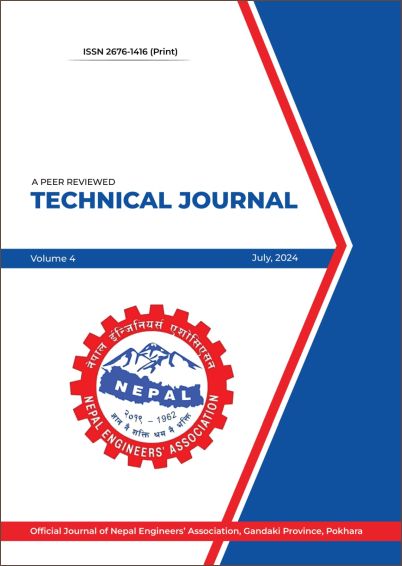Experimental Analysis on Quality of Coarse and Fine Aggregate Produce from Crusher Plants of Syangja District of Nepal
DOI:
https://doi.org/10.3126/tj.v4i1.73951Keywords:
All-in-Aggregate, Mechanical and Physical Propertie, Quality, SpecificationAbstract
Does quality address grade? No, quality standards do not demand the best quality. However, they establish the minimum requirements for engineering uses or conformance with the code provisions or standards, free from faults and defects. Quality control by detection, quality assurance by prevention, and total quality by improving the quality of materials using quality policy and quality planning are necessary for any crusher plant or entrepreneur to achieve customer and society satisfaction. Aggregate must meet specific standards or code provisions for optimum engineering use to get better quality and higher strength concrete. The aggregates' types and quality significantly influence the concrete's properties; hence, the aggregates used to produce concrete that meets the required specifications are a prime concern. The aggregates' quality is significantly related to the concrete's strength, workability, and durability. The physical and mechanical properties of coarse and fine aggregate were analyzed in this research. The test results found that the P1, P3, and P4 crusher plants comply with all physical and mechanical parameters of the IS 383:2016 code provision. In contrast, the crusher plant of P2 does not comply with IS 383:2016 standard on optimizing the coarse and fine aggregate proportion in all-inaggregate analysis. The Gradation of fine aggregates of all the crusher plants does not lie in the grading zone as classified by IS code 383:2016. The inert material satisfying code provisions and standards helps to gain strength, durability, and other concrete parameters during mixed design for concrete production.
Downloads
Downloads
Published
How to Cite
Issue
Section
License
© Technical Journal
Authors are required to transfer their copyright to the journal.




